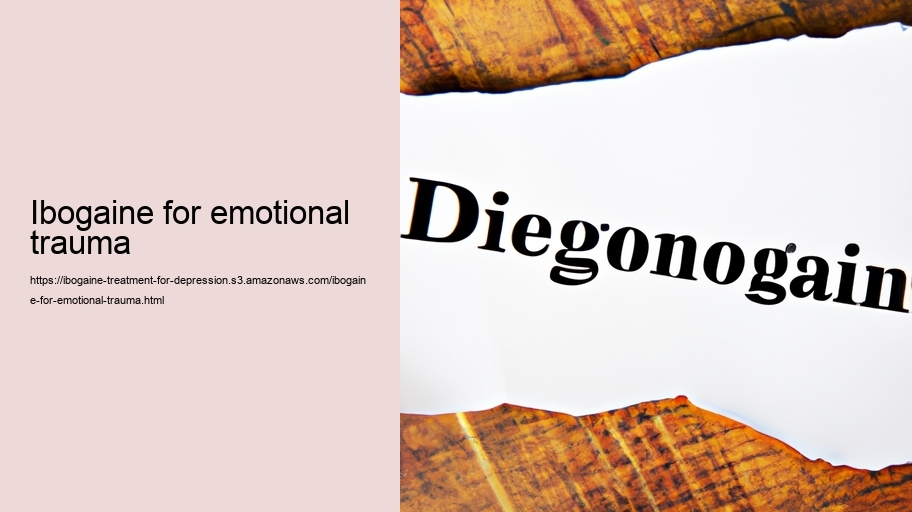Title: Ibogaine: A Controversial Beacon of Hope for Emotional Trauma
Introduction
In the intricate landscape of human suffering, emotional trauma stands as one of the most profound afflictions that can disrupt and derail an individual's life. Traditional therapeutic approaches, while beneficial for many, do not always provide the solace or resolution needed to overcome deep-seated psychological wounds. It is within this search for alternative healing that ibogaine – a psychoactive substance derived from the root bark of the African shrub Tabernanthe iboga – has emerged as a potential unconventional remedy for those burdened by emotional scars.
Understanding Ibogaine
Ibogaine is a complex alkaloid known primarily for its use in treating addiction, particularly opiates and other substances. However, beyond its anti-addictive properties, it has gained attention for its purported ability to facilitate profound psychological introspection and spiritual experiences. Advocates of ibogaine therapy suggest that these experiences can be transformative in addressing unresolved emotional trauma.
Mechanism of Action
The exact mechanism through which ibogaine exerts its effects on the brain remains partly mysterious but is believed to involve multiple neurotransmitter systems. By acting on these pathways, notably those involving serotonin and dopamine, ibogaine appears to induce a dreamlike state where individuals can confront traumatic memories with reduced fear and anxiety. This altered state may grant users access to repressed emotions and enable them to process distressing events from their past more effectively than conventional therapies.
Anecdotal Evidence and Case Studies
Stories abound of individuals who have turned to ibogaine treatment after conventional therapies failed to alleviate their suffering. Many report experiencing vivid recollections of past traumas followed by cathartic release and subsequent relief from symptoms associated with post-traumatic stress disorder (PTSD) and other emotional distresses. Case studies often highlight remarkable turnarounds in mental health following just a single session with ibogain—though scientific rigor demands skepticism until further validated data are obtained.
Controversy Surrounding Ibogain Therapy
Despite anecdotal success stories, ibogain therapy remains controversial largely due to its legal status—it is classified as a Schedule I substance in the United States—and potential safety concerns. The treatment must be administered under strict medical supervision since it can cause dangerous cardiac arrhythmias among other side effects. Furthermore, because it lacks rigorous clinical trial evidence supporting its efficacy specifically for emotional trauma, many within the medical community remain cautious about endorsing its use outside controlled research settings.
Ethical Considerations
When dealing with vulnerable individuals seeking relief from severe emotional pain, ethical considerations become paramount. Promoting unproven treatments carries risks; yet denying potentially effective interventions also poses moral dilemmas if existing therapies prove ineffective. Therefore, navigating this delicate balance requires careful thought regarding consent processes, managing expectations realistically, thorough screening for contraindications to ensure safety first approach should always guide therapeutic explorations into psychedelics like iboga.
Conclusion
Ibogan offers tantalizing hope—a beacon perhaps—in dark waters where traditional therapeutics fail light way forward those grappling debilitating inner demons wrought by life’s cruelties Yet until further substantive empirical validation secured place within standard psychiatric care will likely remain marginal contentious point debate For intrepid souls journeying towards healing exploring every avenue including ones paved unexpected substances such as i bog ain may seem necessary step toward reclaim integrity wholeness amidst turbulence emotional trauma As society continues grapple with complexities mental health innovative yet responsible exploration alternative modalities crucial better understanding how best aid sufferers deepest psychological wounds
